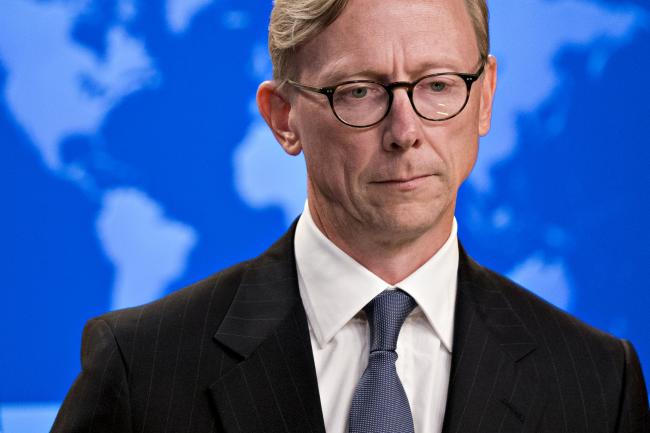(Bloomberg) -- On the eve of the OPEC meeting, the senior U.S. official overseeing sanctions on Iran made a rare foray into the group’s home turf, for a discreet Viennese breakfast with the cartel’s most powerful member.
Brian Hook, the U.S. special representative for Iran, met one-on-one with Saudi Energy Minister Khalid Al-Falih on Wednesday morning in the Austrian capital, said a person familiar with the matter, who asked not to be named because the talks were private.
"We categorically deny such a meeting took place," a Saudi Oil Ministry spokesperson said.
The encounter, first reported by Reuters, was just one of many meetings for the kingdom’s top oil official. He haggled with counterparts from Russia, Iraq and the United Arab Emirates over the size of potential output cuts. Yet it illustrates the extent to which the White House’s Iran policy has inserted the U.S. into the Organization of Petroleum Exporting Countries’ decision-making process.
The U.S. and Saudi Arabia have been discussing the availability of oil on the global market -- sometimes privately, sometimes via Twitter -- ever since President Donald Trump announced in May that he wanted to choke Iran’s oil exports to a trickle to pressure it to reopen nuclear negotiations.
In June, the Saudis opened the oil taps to offset losses from its Gulf rival, raising output by more than 1 million barrels a day since then to a record 11.02 million last month. Then in November the U.S. unexpectedly granted sanctions waivers to many of Iran’s biggest customers, contributing to the biggest monthly crude-price slump in a decade as fears of a shortage turned into predictions of a glut.
“We had to grant oil waivers to ensure that we did not increase the price of oil,” Hook told reporters on Monday on a flight to Brussels. “In 2019 we expect a much better-supplied oil market, and that will put us in a better position to accelerate the path to zero" Iranian oil exports, he said.
The extent to which the market is well supplied next year will depend in large part on whether talks between OPEC and its allies, in which Al-Falih will play a decisive role, result in an agreement to cut production, perhaps as much as 1 million barrels a day.
Iran’s Oil Minister Bijan Namdar Zanganeh decried the Trump administration’s “interventionist” approach.
“If Mr. Hook has come to Vienna to apply for U.S. membership in OPEC, and this is the reason why he meets OPEC members, this request shall be reviewed,” Zanganeh said, according to the ministry’s official news service, Shana. “OPEC is an independent organization and is not part of the U.S. Department of Energy to take orders from Washington.”
(Updates with Iran oil minister comment in final paragraph.)
